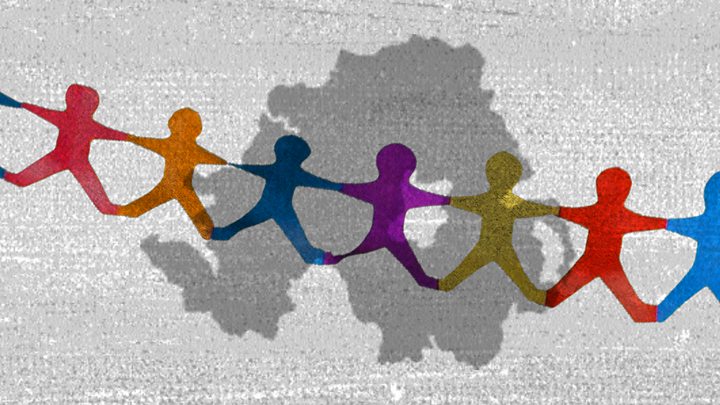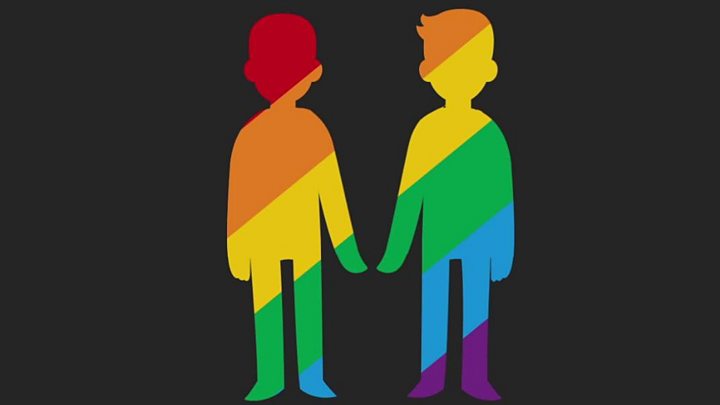 Image copyright
Getty Images
Image copyright
Getty Images
The strict laws on abortion and the ban on same-sex marriage in Northern Ireland are both set to change.
MPs in Westminster have decided to bring them more into line with the rest of the UK, where access to abortion is easier and same-sex marriage is legal.
How does Northern Ireland differ?
A 19th century law criminalising abortion in England, Wales and Scotland was changed by the 1967 Abortion Act.
This allowed an abortion to be legally carried out up to a 24-week limit.
It was also made legal beyond that in cases where the mother's health is threatened or if there is a substantial risk the baby will have serious disabilities.
But these changes didn't apply in Northern Ireland.
Abortion there is still governed by a 1945 law, which says it can only happen if a woman's life is at risk or there is a serious risk to her mental or physical health.
Abnormalities of the foetus considered fatal, as well as rape and incest are not circumstances in which abortions are allowed.

That means women from Northern Ireland have to travel to other parts of the UK to get abortions, either to NHS hospitals or private abortion clinics.

Northern Ireland is also the only part of the UK where same-sex marriage is not legal.
A law that allowed same-sex marriage to be legalised in England and Wales came into force in July 2014.
Scotland legalised same-sex marriage later the same year.
In the Republic of Ireland, a referendum in May 2015 on same-sex marriage saw it legalised, with 62% voting in favour of it.
Last May, Ireland also had a referendum on the abortion ban, and 66% of voters backed changing the law.
Abortion is now legal in all circumstances up to the first 12 weeks of pregnancy and later in cases of fatal abnormalities affecting the foetus - or where the mother's life is at risk.
What do people in Northern Ireland want?
Last October, an Amnesty International poll said two-thirds of people in Northern Ireland felt it was time MPs in Westminster changed the abortion laws, given there was no government in Northern Ireland.
That poll also showed that 65% of people thought that having an abortion should not be a crime.
But it's still a very divisive issue in Northern Ireland.
While the proposed changes were being discussed in Westminster, a letter was circulated at Catholic church services across Northern Ireland, calling for the decision to be reversed.
Those behind it said more than 16,000 people had signed the letter including Arlene Foster, the leader of the socially-conservative Democratic Unionist Party (DUP).
A study last year showed that over time the public in Northern Ireland has changed its views on same-sex marriage and abortion.
In 1998, a majority of people thought same-sex relationships were always wrong, but this figure had fallen to 27% by 2013.
And by 2016, more than 80% thought the law should definitely or probably allow abortion where a foetus had a fatal abnormality, whereas in 1998 that figure was around 50%.
In November 2015, a majority of members in the Northern Ireland Assembly - which has the power to decide laws on social issues - voted in favour of legalising same-sex marriage for the first time.
Several legal challenges have been made to try to overturn the ban on same-sex marriage but they were dismissed by judges.
On abortion, the Northern Ireland Assembly in 2016 debated plans to amend the laws, but the majority of assembly members voted against.
The DUP opposes changes to the abortion law.
However, the other main Northern Ireland political party, Sinn Féin, now supports moves to legalise same-sex marriage and to allow more access to abortion.
Other parties either support reform, or say it's a matter for the conscience of individual party members.
What did MPs do at Westminster?
MPs were debating a bill about keeping public services running in Northern Ireland in the absence of a functioning government there.
It has been without a government or assembly since January 2017, when the two ruling parties - the DUP and Sinn Féin - split in a bitter row.
Two Labour MPs - Conor McGinn and Stella Creasy - tabled amendments to the bill to change the law on same-sex marriage and abortion so it's more in line with the rest of the UK.
These have now been approved by parliament, and the bill is due to become law later this week.
If by 21 October, government has not been restored in Northern Ireland, same-sex marriage will be legal and the rules restricting access to abortion will change.
However, there will be a delay before the changes come into effect.
Regulations for same-sex marriage will come into force by January 2020 and for abortion by March 2020.
The government has said there will be a consultation period to establish how the changes to abortion law will work.
So for the moment, it is not clear if the law in Northern Ireland will become the same as elsewhere in the UK.